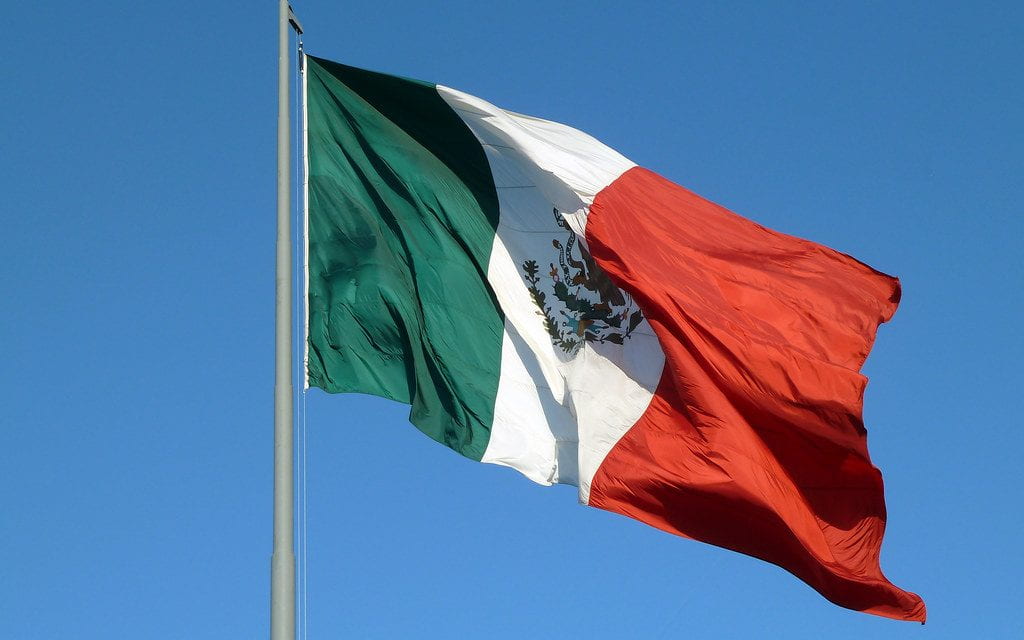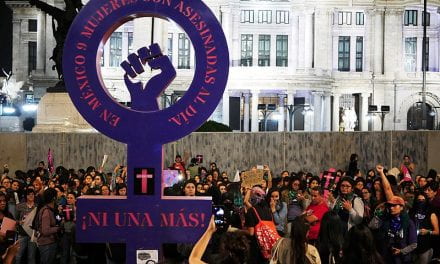Since the beginning of 2020, six journalists have been murdered in Mexico. In the afternoon on September 9th, the latest victim—Julio Valdivia—was found decapitated in Veracruz near railroad tracks. He was a veteran reporter who had been working for over two decades, mainly reporting on crime and security with the Córdoba’s Diario El Mundo newspaper. Valdivia is the second journalist to get killed in the Veracruz state this year, Maria Elena Ferra being the first, and due to this common occurrence Mexico is the most dangerous country in the world for those in the news reporting field [1]. The nation received this reputation in 2019 as well, having more reported killings than many countries that are seemingly more dangerous—Syria, Yemen, and Afghanistan for example [2]. Since 1992, more than 120 journalists have been killed in the country, and this statistic does not include journalists that are missing, only people who have actually been found [3].
The murder of any individual is horrific, but the murders of news reporters, journalists, and others who relay important information to the masses, is cause for genuine concern regarding the infringement of certain freedoms—such as information. Journalism exists to provide people with the information that they need to help them, “make the best possible decisions about their lives, their communities, their societies, and their governments” [4]. Without independent press, citizens of democratic nations would likely have to rely on the government for this information. This can create conflict as said government would have a vested interest in keeping their citizens unaware of various atrocities, dangers, and any other types of information that could create mass concern or protest. And when citizens are unhappy with how their government is being run they tend to take action, action that would help to ensure that different officials come into power.
Many speculate that Mexico’s increase in journalists’ murders is due to the government not deterring the acts through proper investigation and prevention. Jan-Albery Hoosten, who is the representative for the Committee to Protect Journalists in Mexico, recalls, “Bar some exceptions, Mexican authorities, both state and federal, have shown themselves to be utterly incapable of properly investigating crimes against the press” [5]. Overall decreases in crime would also prevent the murders from transpiring, as the main motive seems to be the fact that these journalists report on the types of crime that deserve national, or even worldwide, attention. Actually, crime in Mexico has risen each year since 2014, and although it is not the murder capital of the world, it is ranked 19th and other areas of crime continue to be widespread throughout the country [6]. Crime, specifically murder, is so commonplace that when Mexican authorities decide to genuinely take precautions—such as by assigning security guards to protect known potential targets—the security guards are also murdered along with the reporter [7]. The most recent incident of this was on August 3rd when Pablo Morrugares and his body guard were murdered in Iguala, Guerrero. Morrugares had been assigned a bodyguard since 2016, when another attempt was taken on his life. His main stories reported on the gang violence in this state [8].
Because individuals, cartels, gangs, etc. have become comfortable enough to eliminate any person that is an impediment for them being able to inconspicuously commit crimes, it is ever more important for the information journalists find to be effectively shared. Reporting on these activities is a major deterrent in criminal affairs—as people become incriminated—so it is understandable why reporters are such major targets. Therefore, since the Mexican government does not always fully acknowledge these murders and their connections to the dispersing of information, it implies that they are either benefiting from said murders, or that they are incompetent.
As suggested, the rise in journalist murders and crime overall indicates that if reporters are able to find evidence and make conclusions about who is generating higher crime rates, they are also able to share their findings—which is an obvious motive for any criminal whose information may be shared. Another important detail about journalist murders is that they tend to be in the states of Mexico that have the most, “corruption, crime, and human rights abuses at the political and metropolitan periphery”, [9] which indicates that the Mexican government has a tendency to not effectively prevent the actions of unlawful citizens in the very states that need the most attention and investment. One can also argue that the federal government even benefits from ignoring these starkly struggling areas because of bribery. Certain criminal enterprises, such as drug cartels, produce enormous amounts of money and can persuade federal or local government officials, that should be regulating or ceasing their activities, to allow them to occur in exchange for the capital [10]. Other aspects of society or life where journalists’ reports increase their likelihood of encountering danger include land allocation violations and environmental injustices—areas where the Mexican government benefits from taking advantage of indigenous populations or the land [11]. Meaning each of these activities where the government profits serves as evidence that they have more to gain from allowing these murders than to find ways to truly stop them.
The importance of this work is certainly emphasized by the journalists who continue to do research and report their findings. Because these journalists realize the dangers associated with the news they disperse throughout their country, yet still choose to do the work, it is obviously very necessary for the proper function of their society—so necessary that they are willing to live with increased risk of enduring violence and dying. One might ask, how can the Mexican government lower the overall amount of crime that occurs throughout the country? As well as, how can they truly prevent the killings from happening? The answers to these questions are multifaceted because the problems are highly complex. One major aspect of a solution is the government fighting crime in rural jurisdictions—not just in major cities. Veracruz, where Valdivia worked, is a rural state where over half of the population lives in poverty [12]. Yet, the government has mainly focused their crime intervention in major cities, resulting in criminal enterprises becoming more fractured and active in rural areas—thus continuing to carry out crimes [13]. Another factor that must be considered is allowing actual police departments to arrest and end activities in their districts, rather than having the military do so [14]. By utilizing the armed forces to deter crime, Mexico is spreading their national defenses thin and also delegitimizing police forces’ power and reputation—which makes criminals more likely to think they will continue to get away with whatever illegal acts they commit. Also, the Mexican government must create a plan that will allow their defense against these enterprises to evolve just as quickly as the criminals do [15]. Part of the problem that has existed since the start of the century is that the authorities have been unable to keep up with the growing nature of large criminal schemes; therefore, by expecting these changes they will be better equipped to continue to fight whichever operation that they need to. And by applying these changes in their process of ending such massive criminal organizations, the Mexican government will subsequently aid in stopping the murders of journalists.
By not fully pursuing criminals that kill journalists, while also ineffectively fighting the war against large criminal enterprises, the Mexican government is allowing the silencing of voices that deserve to be heard. Not only are they not providing justice to murder victims’ families, they are also fundamentally taking away the freedom that information gives to their citizens in their democratic nation. Journalism is key to the dispersing of information, and although certain news outlets are biased, it needs to be up to the people to decide which information they choose to take into account.
Works Cited
[1] Ausley, Christina, Henry Brechter, and Ashley Hopko. “The System Is Failing Mexican Journalists. Here’s How They’re Fighting Back.” Poynter, August 6, 2020. https://www.poynter.org/reporting-editing/2020/the-system-is-failing-mexican-journalists-heres-how-theyre-fighting-back/.
[2] Gallón, Natalie. “Another Journalist Found Dead in Mexico, One of the Most Dangerous Countries for Reporters.” CNN. Cable News Network, September 11, 2020. https://www.cnn.com/2020/09/11/americas/julio-valdivia-mexico-murder-intl/index.html.
[3] Ibid.
[4] “What Is the Purpose of Journalism?” American Press Institute, July 18, 2017. https://www.americanpressinstitute.org/journalism-essentials/what-is-journalism/purpose-journalism/.
[5] Ibid.
[6] “How Dangerous Is Mexico?” BBC News. BBC, February 18, 2020. https://www.bbc.com/news/world-latin-america-50315470.
[7] “Mexico Journalist Gunned down – the Fifth to Be Killed This Year.” The Guardian. Guardian News and Media, August 3, 2020. https://www.theguardian.com/world/2020/aug/03/mexico-journalist-killed-pablo-morrugares.
[8] Ibid.
[9] Brambila, J. A. “Forced Silence: Determinants of Journalist Killings in Mexico’s States, 2010–2015.” Journal of Information Policy 7 (2017): 297–326. https://doi.org/10.5325/jinfopoli.7.2017.0297.
[10] “US Charges Ex-Mexican Official with Taking Bribes from Cartel.” Mexico | Al Jazeera. Al Jazeera, December 10, 2019. https://www.aljazeera.com/news/2019/12/10/us-charges-ex-mexican-official-with-taking-bribes-from-cartel.
[11] “Journalism in Mexico: Report for a Living, Get Killed for Reporting.” openDemocracy, July 21, 2020. https://www.opendemocracy.net/en/democraciaabierta/periodismo-en-mexico-informar-para-vivir-morir-por-informar-en/.
[12] Kiprop, Joseph. “The Poorest States In Mexico.” WorldAtlas. WorldAtlas, August 13, 2019. https://www.worldatlas.com/articles/the-poorest-states-in-mexico.html.
[13] Rios, Viridiana. “New Crime, Old Solutions: The Reason Why Mexico Is Violent Again,” February 2018. https://www.wilsoncenter.org/publication/new-crime-old-solutions-the-reasonwhy-mexico-violent-again.
[14] Ibid.
[15] Ibid.





